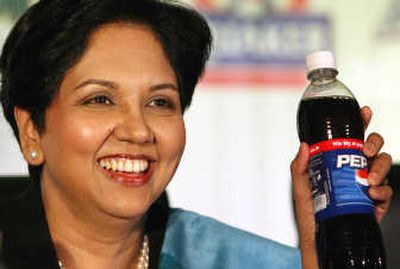Ranks of India-born leaders on rise

NEW YORK – The ascension of India-born leaders like Vikram Pandit, the new CEO of Citigroup Inc., tracks the economic rise of their home country, once seen by U.S. business as a large market and a source of low-cost technology workers, now viewed as a business power that rivals the U.S. in some industries.
The change is visible on the board of the U.S.-India Business Council, once comprised only of executives from U.S. companies doing business in India. Now, the board includes executives from global companies with business in India, Indian-Americans heading global businesses and Indian companies with U.S. interests.
Board members include Arun Kumar, head partner at KPMG International; Indra Nooyi, CEO of PepsiCo Inc.; and Lakshmi Narayanan, vice chairman of Cognizant Technology Solutions, an outsourcing company that bills itself as “the best of both worlds.”
ArcelorMittal has grown into the world’s largest steelmaker, offering $1.65 billion Friday for the remaining shares of Chinese steelmaker China Oriental Group Co. it doesn’t already own. While the company is based in the Netherlands, its Indian CEO and founder, Lakshmi Mittal, controls nearly half its shares.
India’s outsourcing companies have grown to take on more valuable contracts, pitting them against U.S.-based giants such as IBM Corp. and Accenture Ltd.
For instance, India’s Tata Consultancy Services Ltd. in October announced a $1.2 billion contract from American market research firm Nielsen, the largest outsourcing order ever won by an Indian company and one that includes services from information technology infrastructure management to payroll processing.
And India’s Tata Group has expressed its interest in buying Ford Motor Co.’s Jaguar and Land Rover units.
“It’s harder to see the borders now,” said Gregory Kalbaugh, director and counsel of the U.S.-India Business Council.
As the Indian economy has been on a tear, clocking 6 to 8 percent annual growth, Indian and U.S. political leaders have viewed business ties as a way to bring the countries closer. President George Bush and Prime Minister Manmohan Singh hand-picked members of the US-India CEO Forum, launched in 2005, to plan increased partnership and cooperation.
Meanwhile, U.S. businesses, increasingly dependent on foreign trade, have intensified their interest in promoting an international group of executives. Nearly half of sales for 238 of the largest U.S. companies came from outside the U.S. for fiscal year 2006, up from one-third of sales in fiscal 2001, according to Standard & Poor’s.